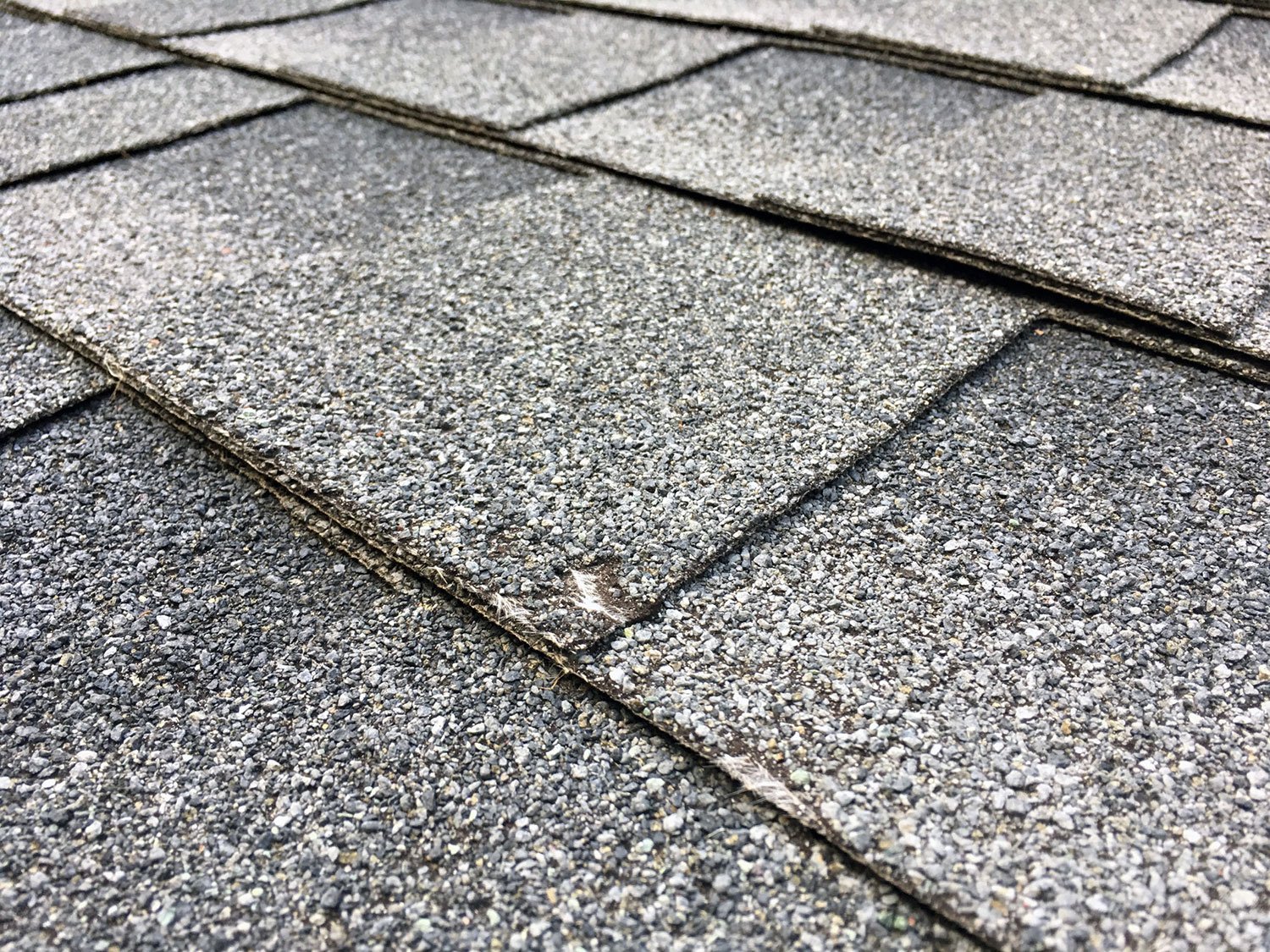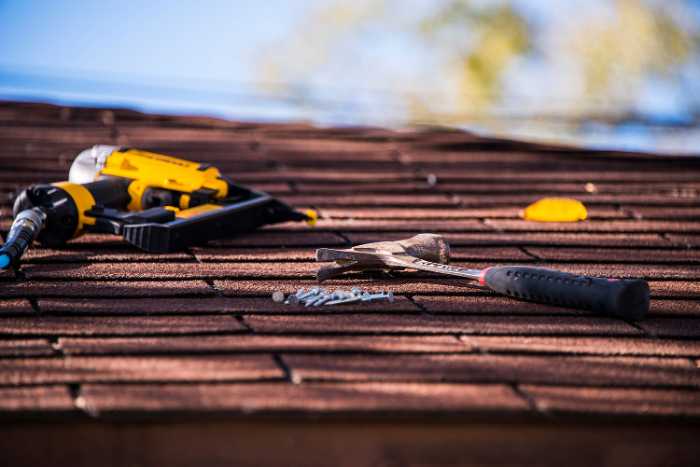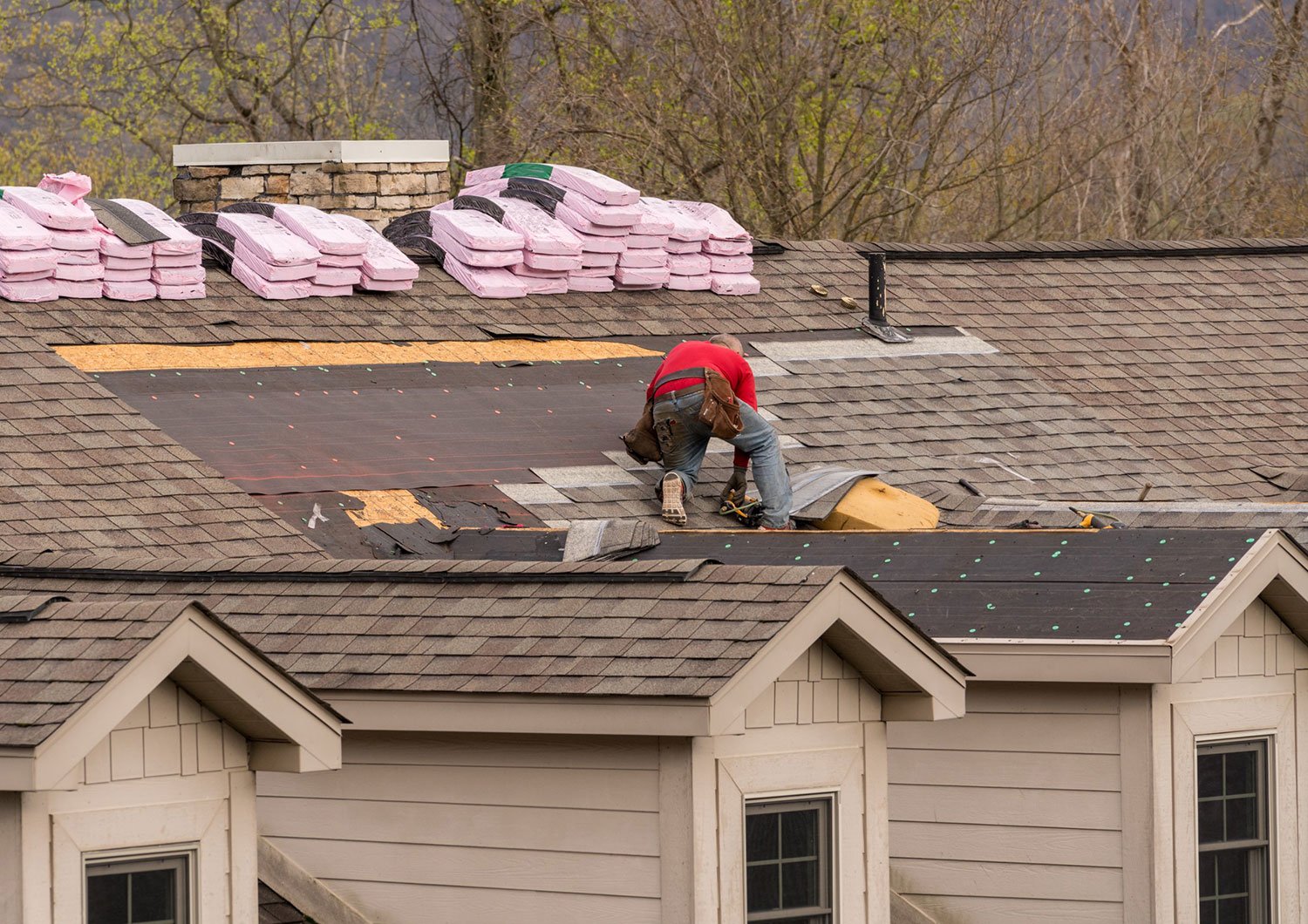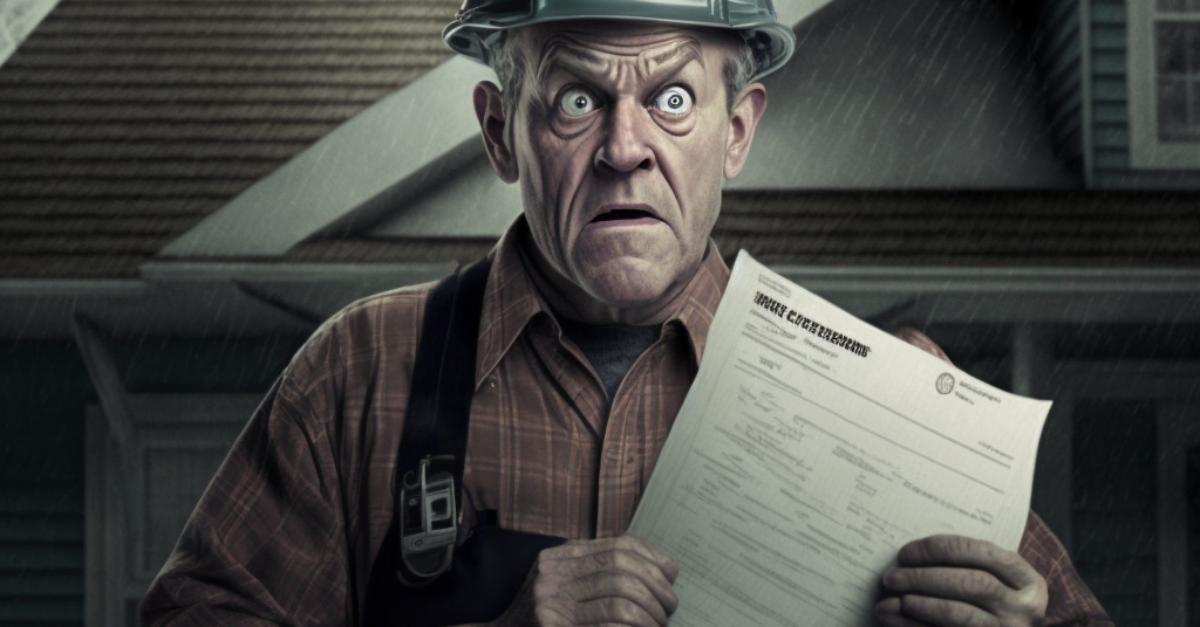Roof repair scams are a major problem in Colorado Springs, and they can be difficult to spot. These scams can leave homeowners with shoddy workmanship, overpriced services, and even legal troubles. As a homeowner, it’s important to be aware of the most common roofing scams in Colorado Springs to protect yourself from falling victim to these scams.
The “Free Upgrade” Scam
One common scam in Colorado Springs involves roofers offering a free roof upgrade to class 4 impact-resistant shingles, but then installing standard shingles instead. This scam can be difficult to detect because the shingles look similar, and most homeowners don't have the expertise to tell the difference. To avoid falling for this scam, be sure to research the contractor and verify their credentials. Additionally, ask for the details of the materials and the process they will use, and get a written contract that outlines what you're paying for.

Vandalizing Your Roof
Another scam is when a roofer vandalizes your roof to create damage that needs to be replaced. Some of the most common methods include using a dime to create small dents or a golf ball in a sock to create hail hits. This scam is designed to take advantage of your insurance claim and get more money. It's essential to be present during any roof inspection to ensure that any damage is legitimate. If you suspect that a roofer has vandalized your roof, contact the Better Business Bureau or your insurance company.
Kickbacks to Insurance Agents
Some roofing contractors offer kickbacks to insurance agents for referrals. This unethical practice can lead to inflated claims and higher insurance premiums for homeowners. To avoid falling for this scam, be sure to research your roofing contractor and choose one with a good reputation. Additionally, verify the details of your insurance claim directly with your insurance company.
Not Paying Sub-Contractors or Material Suppliers
Another roofing scam is when a contractor does not pay their subcontractors or material suppliers. This can result in a lien on your house, which means that you cannot sell your house until the lien is resolved. To avoid this, make sure to work with a reputable contractor who has good relationships with their suppliers. You can also ask for references and research the contractor's history to ensure that they are trustworthy.
Exaggerating the Scope of Work
Some roofing contractors may exaggerate the scope of work needed for your roof replacement to inflate the price. This scam can be difficult to detect, especially if you're not familiar with roofing terminology. To avoid falling for this scam, get estimates from multiple roofers and ask for a detailed explanation of the work that needs to be done. Additionally, be sure to get a written contract that outlines the work to be done and the price you will pay.

High-Pressure Sales Tactics
If a roofer is pressuring you to make a quick decision, it may be a scam. They may use threatening language, such as threatening legal action if you don't use their services. Some may even give you a contract that "obligates you to use that roofer". Always read contracts carefully and take your time to make a decision. If a contractor is making you feel uncomfortable or rushed, it's best to walk away.
Bad Roofing Work
Many homeowners don't know the difference between good and shoddy roof work, making them an easy target for scammers. To avoid falling for this scam, work with a reputable roofing contractor with a track record of quality work. Check their online reviews, ask for references, and verify their credentials. Additionally, be sure to ask questions and get a detailed estimate of the work to be done.
Paying Your Insurance Deductible
When it comes to repairing or replacing your roof, you may be tempted by a contractor who offers to pay your insurance deductible for you. However, it's important to be aware that this practice is illegal in many states and can result in serious legal troubles for both you and the roofing contractor. That's why we recommend paying your deductible yourself to avoid any potential issues so you don't potentially commit insurance fraud.
It's also essential to verify the details of your insurance claim with your insurance company directly. Avoid contractors who offer to handle the insurance claim for you, as this can be a red flag for roofing scams. By taking these steps, you can ensure that your roof replacement is handled ethically and legally, giving you peace of mind and protecting your investment.

Taking Deposit Money and Not Completing the Work
Unfortunately, some roofing contractors may take your deposit money and not complete the work. This scam can leave you with an unfinished roofing project and out of pocket for the deposit. To avoid this scam, only give the deposit when the material arrives and make sure that the contractor has a good reputation. Additionally, get a written contract that outlines the payment schedule and completion timeline, and make sure to keep track of payments and progress.
"Storm Chasers"
After a hail storm, it's not uncommon for "storm chasers" to show up in your area, offering to repair or replace your roof. These are typically out-of-town shady roofers who travel to storm-affected areas to take advantage of homeowners in need. While not all out-of-town contractors are unscrupulous, it's important to be cautious and do your research before hiring any contractor, especially those who show up uninvited.
Storm chasers often use high-pressure sales tactics, such as offering discounts or claiming that they can complete the work faster than other contractors. They may also make promises that they can't keep or fail to deliver on the work they do complete. To avoid falling for this type of roofing scam, be sure to research any contractor before hiring them. Check their credentials, read online reviews, and ask for references from previous clients.
Additionally, be wary of contractors who ask for payment upfront or offer to handle the insurance claim for you. It's important to verify the details of your insurance claim with your insurance company directly and to work with a contractor who is transparent about their pricing and payment policies. By taking these steps, you can avoid falling victim to storm chasers and get the best roof replacement for your home.
Conclusion
In conclusion, roofing scams are a significant problem in Colorado Springs, and it's essential to be aware of the most common scams to protect yourself. Always do your research and choose reputable roofing contractors with a good reputation, verify the details of your insurance claim, and never rush into a decision. By taking these steps, you can avoid falling for roofing scams and hire the best roofing company for your home. Remember, if something seems too good to be true, it probably is.
To help homeowners avoid roofing scams, we have created a guide on choosing the best roofer. This guide includes tips on how to find a reputable contractor, what to look for in a roofing estimate, and what questions to ask before signing a contract. Download our guide to protect yourself from getting scammed and get the best roof replacement for your home.




